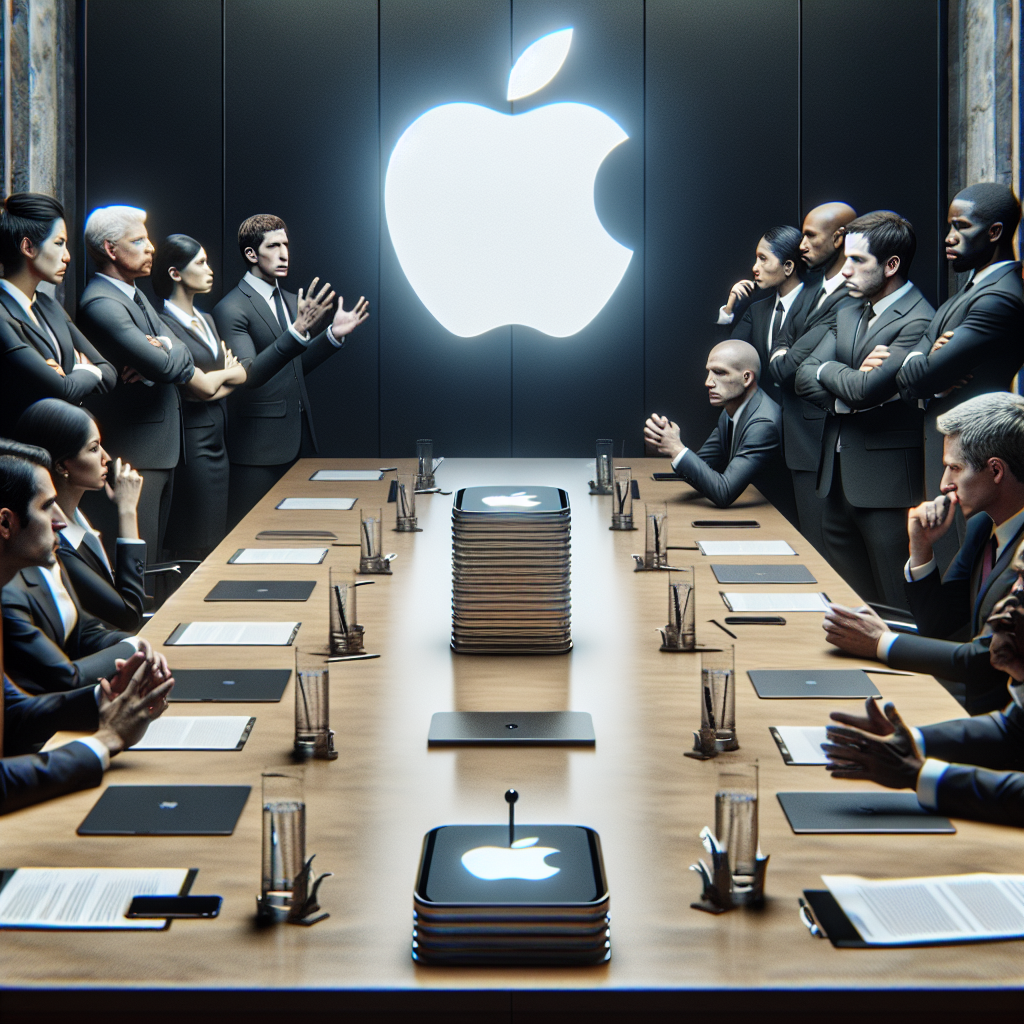Apple Confronts Shareholder Lawsuit Regarding AI Delays
Apple is facing a significant legal battle as shareholders have initiated a class action lawsuit against the corporation. The lawsuit focuses on purported delays and mismanagement in the launch of Apple’s artificial intelligence initiative, Apple Intelligence, which shareholders assert has resulted in considerable financial losses.
The Lawsuit and Its Consequences
Apple shareholders, spearheaded by Eric Tucker, have pursued legal action against the technology giant, citing the organization’s inability to fulfill commitments related to AI advancements. The class action lawsuit, lodged in a federal court in San Francisco, identifies Apple CEO Tim Cook, CFO Kevan Parekh, and former CFO Luca Maestri as defendants. The shareholders contend that the postponements in the introduction of AI-enhanced features, particularly the improved Siri, have resulted in nearly a trillion dollars in diminished market value.
The Setbacks in Apple Intelligence
Apple Intelligence was launched with the assurance of providing a more tailored user experience. Nevertheless, the rollout has been plagued by delays and obstacles. Apple did unveil features such as Writing Tools, Image Playgrounds, and Summaries, yet the eagerly awaited personalized Siri update has yet to arrive. This has intensified shareholder dissatisfaction and led to accusations of deceptive communication from Apple concerning the schedule and progress of its AI projects.
Financial Consequences and Market Response
The financial impact of these delays has been profound. Following a record peak on December 26, 2024, Apple shares have diminished by nearly 25% in value, equating to around $900 billion in market capitalization. Shareholders maintain that the AI rollout was viewed as a critical factor for iPhone 16 sales, and the persistent delays have contributed to the drop in share prices.
Apple’s Reaction and Prospective Outlook
During the 2025 WWDC Keynote, Apple executives, including Craig Federighi, recognized the ongoing efforts on the AI project but refrained from offering a concrete timeline for the enhanced Siri’s debut. The ambiguity has left shareholders and market analysts apprehensive about the future of Apple’s AI capabilities and its repercussions on the company’s stock performance.
Conclusion
The lawsuit against Apple highlights the significant stakes at play in the race within the tech sector to implement cutting-edge AI technologies. As Apple maneuvers through this legal challenge, the resolution could have profound impacts on its reputation, financial stability, and competitive position in the AI landscape.
Q&A Session
Q1: What are the primary reasons for the shareholder lawsuit against Apple?
Shareholders claim that Apple deceived them regarding the timeline and progression of its AI developments, resulting in substantial financial losses.
Q2: Which specific AI feature is central to the lawsuit?
The enhanced, personalized Siri update, which was heavily marketed but remains unreleased, is the focal point of the shareholder lawsuit.
Q3: How much market value has Apple forfeited due to these alleged delays?
Since December 2024, Apple shares have lost about 25% of their value, constituting roughly $900 billion in market capitalization.
Q4: Who are the parties named in the lawsuit?
The lawsuit identifies Apple CEO Tim Cook, CFO Kevan Parekh, and former CFO Luca Maestri as the named defendants.
Q5: What features has Apple successfully released under its AI initiative?
Apple has successfully launched features such as Writing Tools, Image Playgrounds, and Summaries within its AI initiative.
Q6: What was Apple’s response during the 2025 WWDC Keynote concerning the AI delays?
Apple executives, including Craig Federighi, acknowledged the ongoing development of the AI project but did not specify a timeline for the release of the enhanced Siri.